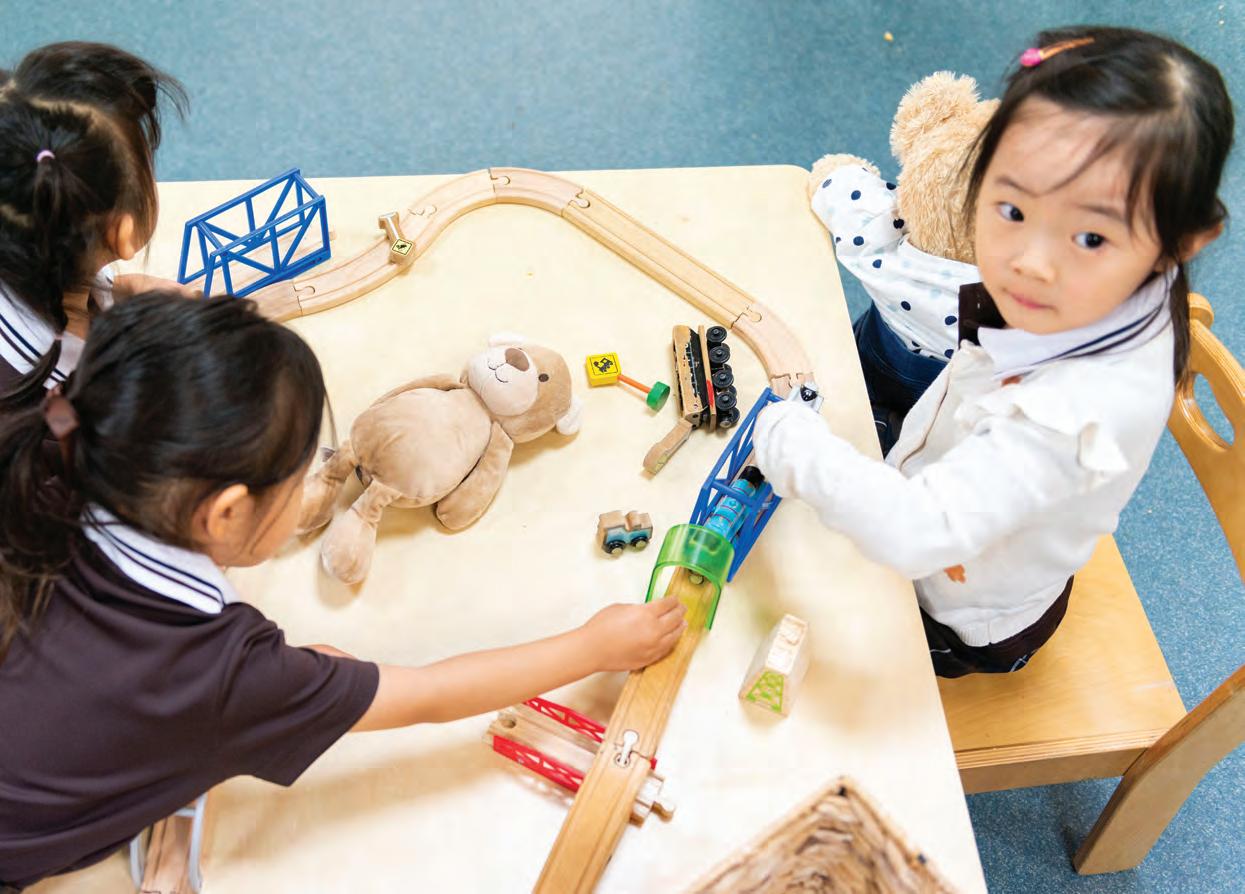
4 minute read
From the Principal
MS TONI RIORDAN PRINCIPAL
At the time of writing, preparations for our annual Reunion Week are in full swing. As I look forward to the many events of the week, and indeed, to our interstate reunions too, I am reminded of the incredible sense of belonging to St Aidan’s, I continue to witness in our Alumni each year.
Advertisement
There is over three decades of research identifying that the need to feel a sense of belonging is a powerful motivator of human behaviour. Belonging can be defined as an individual’s innate motivation to form and maintain interpersonal relationships that are lasting, positive, and significant – with a general feeling of being an integral part of something including surroundings, culture, community, school, and work.
Lockdowns and physical distancing measures over the past two years have made us realise how important a sense of belonging is in our everyday lives. In the middle of lockdowns, I not only longed for family and friend connections, but I also missed weekly Pilates classes with the same group of people; seeing neighbours at community events like Street Fairs; or being with others at cultural activities, such as visits to the theatre and galleries.
Once we could no longer belong to the different groups, workplaces, schools, and other places of interaction in our usual way, feelings of “not belonging” may have overwhelmed us.
School belonging is the extent to which individuals feel they are accepted, respected, included and supported by others. School belonging can include a sense of affiliation with the school, relationships within the school environment, and individual’s perceptions and feelings about school.
Programs and activities, which grow a sense of belonging occur naturally and seem effortless in schools such as St Aidan’s Anglican Girls’ School; however, we know that belonging should not be undermined just because it seems easy. We continue to create meaningful ways to prioritise belonging at a social level, here at St Aidan’s.
Our evidence-based, orientation activities for new students in the Junior and Senior Schools; our Penguin Pal buddy program for Junior School students, and in the Senior School, our Peer Support program assist students to feel at home at St Aidan’s. Weekly SEL (Social Emotional Learning) lessons and the school wide RVE (Religious and Values Education) program support the formation of our students and anchor them to our School values and our School culture.
A House system over 90 years old, form classes, contemporary outdoor education and camp programs challenge students to participate, collaborate and take risks together. Connecting with Alumni via Leading Ladies lunches, our guest speaker program for major events such as awards ceremonies and inviting Old Girls to our annual Ascension Day assembly help model what it is like to be a St Aidan’s student over many generations of life. And of course, our extensive extracurricular program, in which Junior and Senior School students with similar interests and passions can try out new challenges with like-minded girls and help forge life-long friendships.
The OECD collects information on school belonging through the Program for International Student Assessment (PISA), and it has identified that a student’s experience of belonging is an important ingredient in a successful school outcome. In fact, its data identifies that many students don’t belong.
Since 2003, the number of students who feel like they don’t belong has risen. Now it has been identified as a concerning trend in education.
Thankfully, we take heart in a report analysing Australian and New Zealand PISA data from 2015 and 2018, which reveals girls at single gender schools outperform girls from co-educational schools, on academic measures, social and emotional outcomes, and other aspects of students’ wellbeing.
The study, conducted by Macquarie Marketing Group (MMG), included a total of 314 individual measures comparing the responses of girls from single-sex and co-educational schools. Of these, girls from single-sex schools reported a positive difference on 227 (72%) of measures.
A key finding of the PISA report was that all-girls’ schools provide significant health and wellbeing benefits for their students. It revealed that girls in single-sex schools generally enjoy school more, experience less bullying, have fewer disruptions in class, make friends more easily, and feel more like they belong.
At St Aidan’s, we know that a strong sense of connectedness to their school community and the support they get from these networks, while they are at school and after they leave school, is also a driver of student wellbeing, and particular, resilience.
Belonging is a fundamental need for humans. For students it makes all the difference to school engagement, mental health, and personal wellbeing. You will see included in this edition of the Huddle many instances of how St Aidan’s encourages all our community members to belong. Enjoy!


